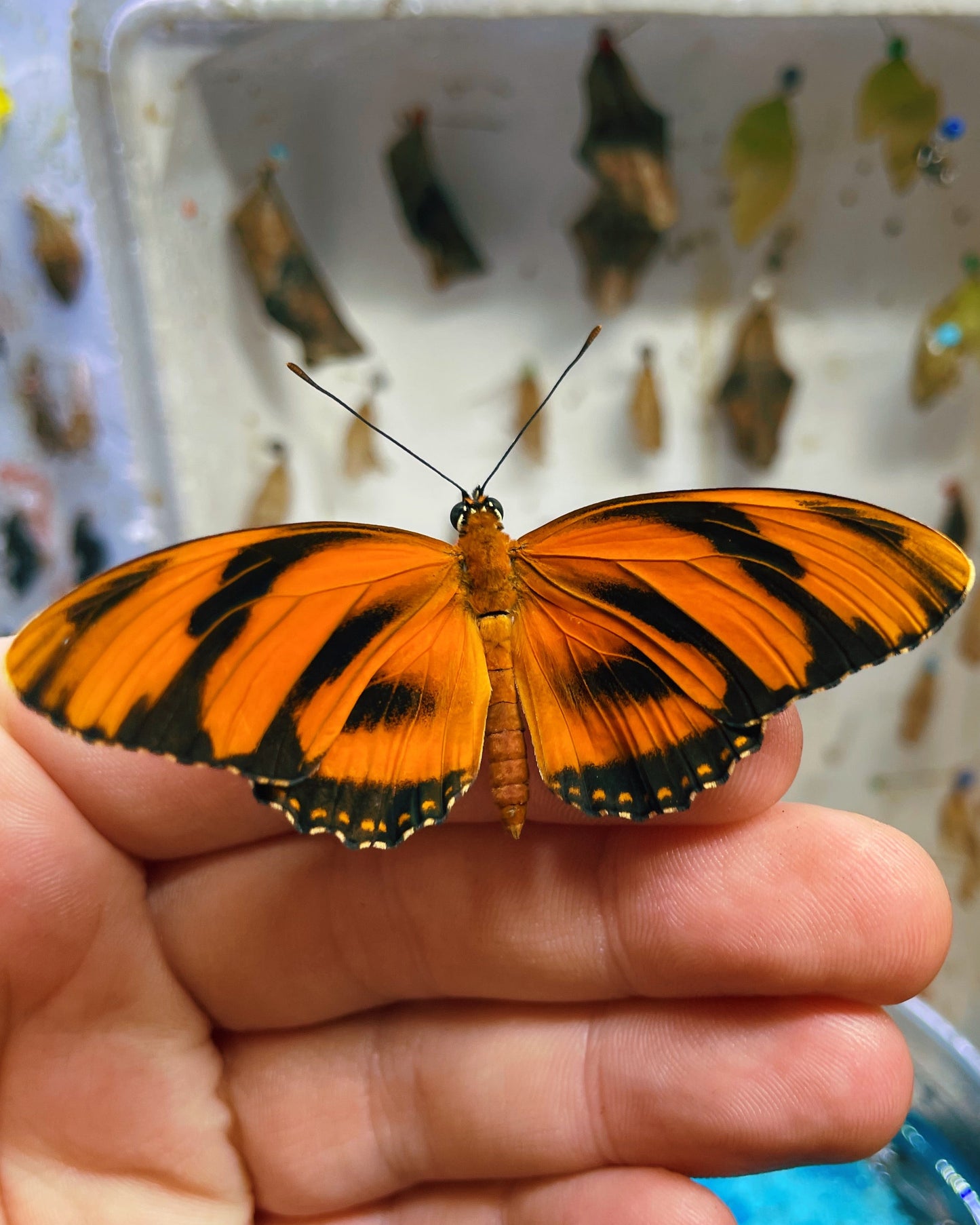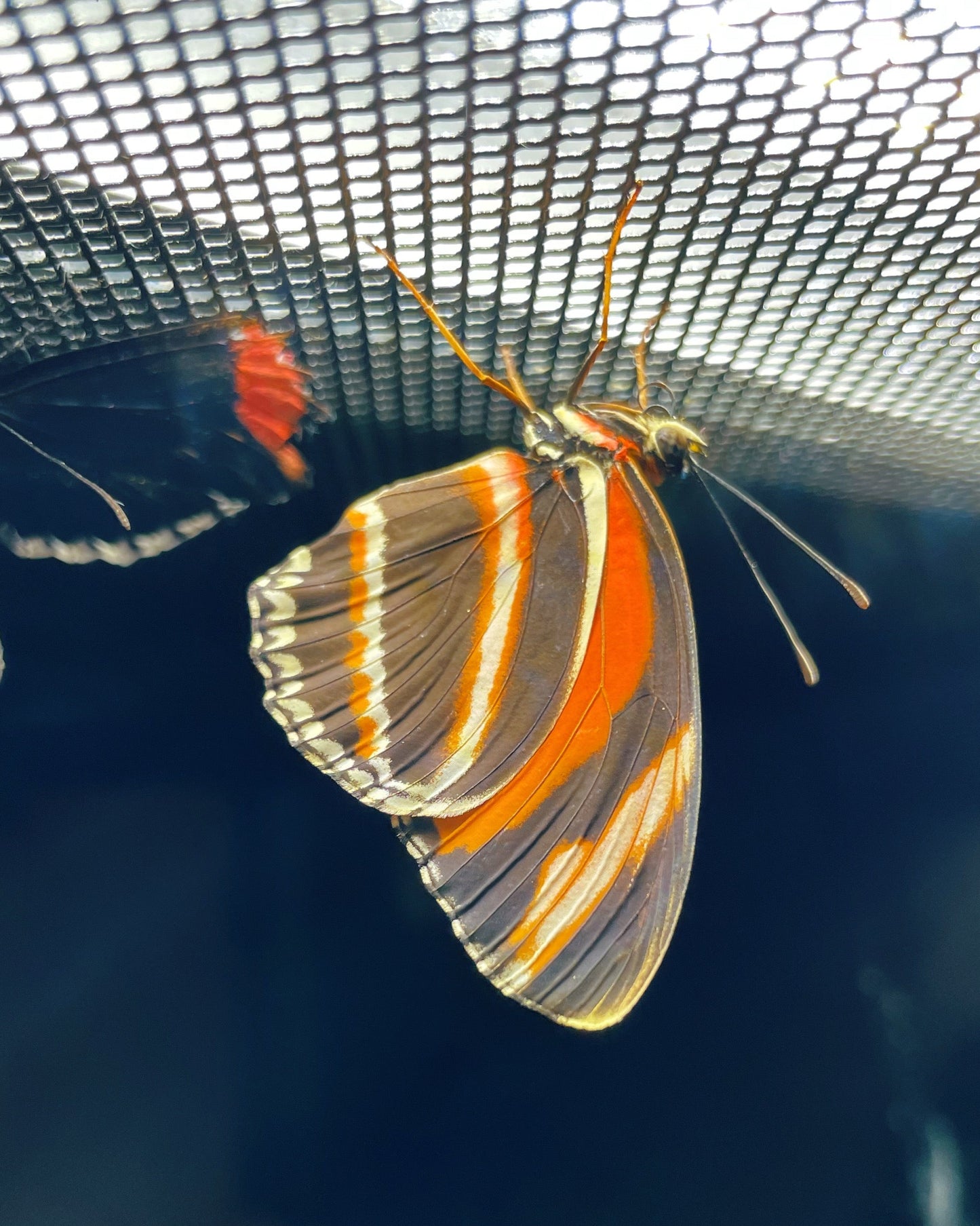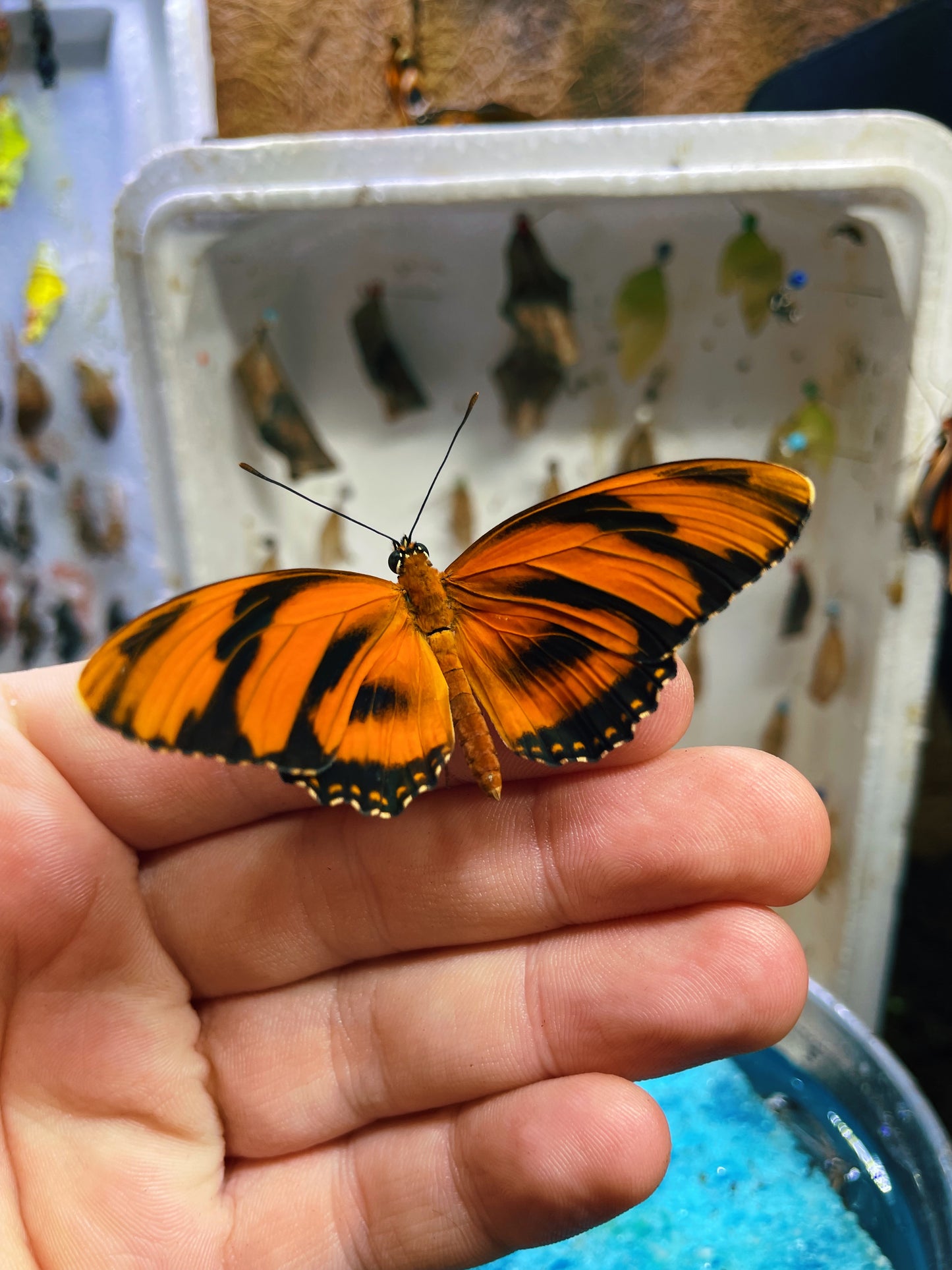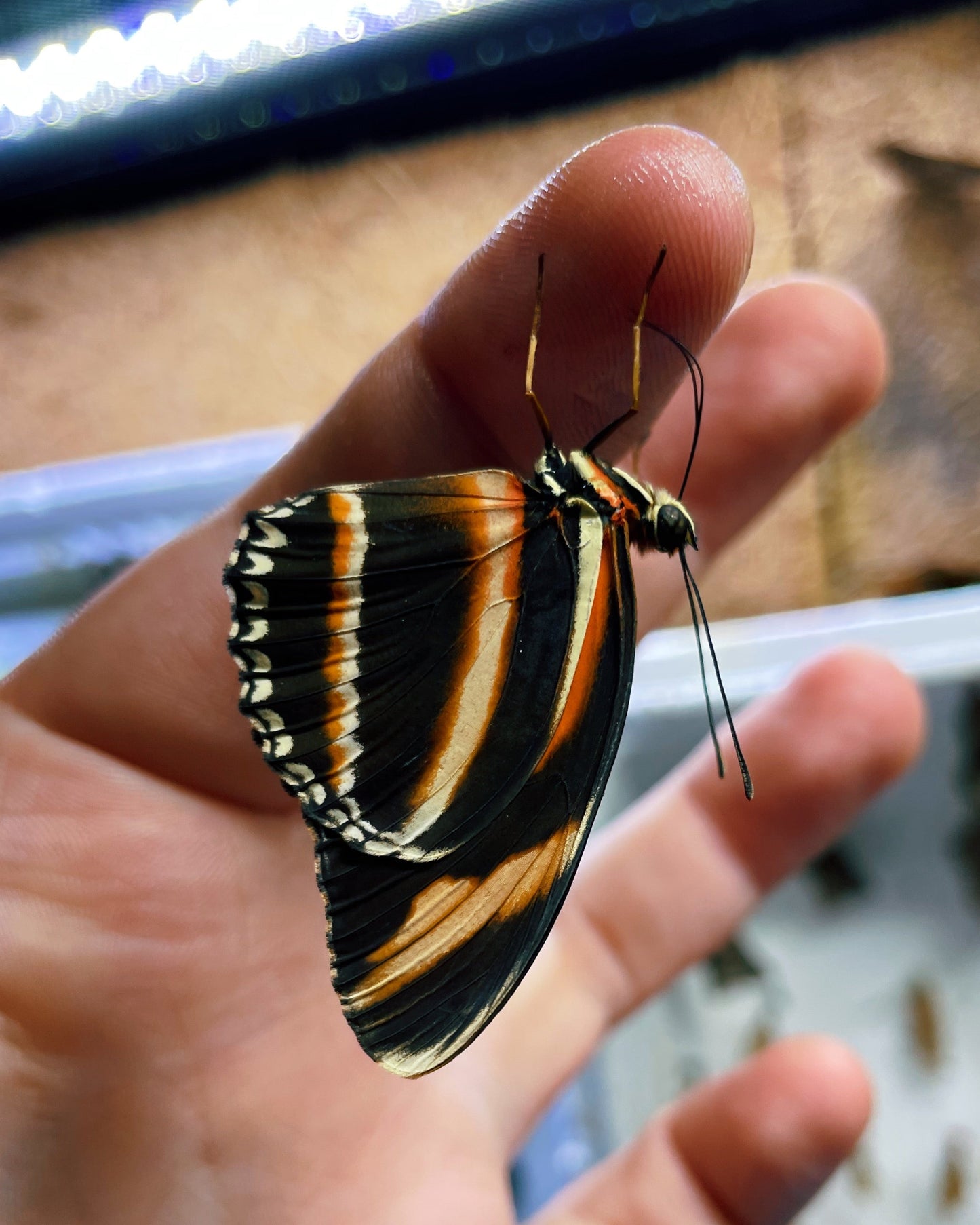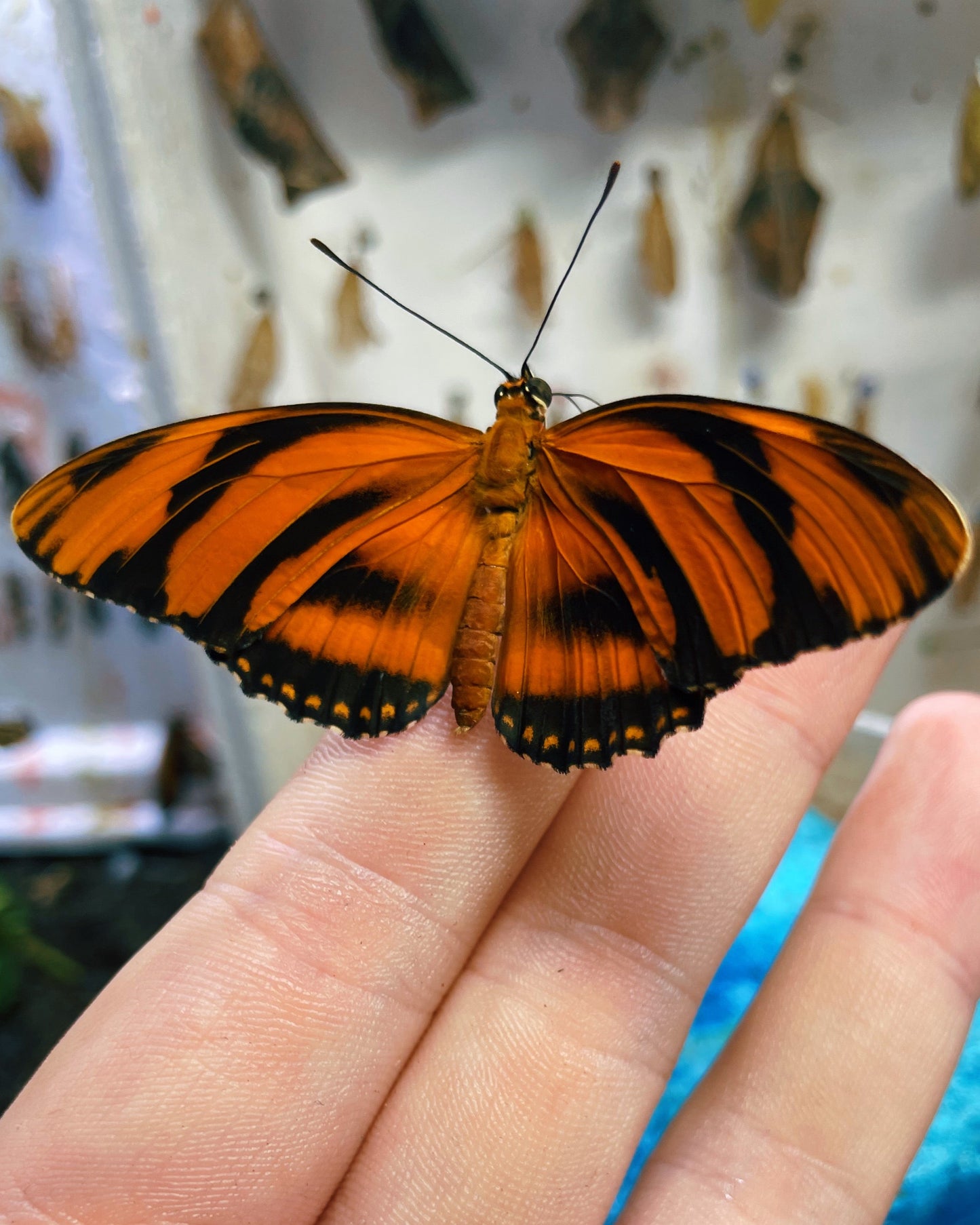Bugs & Butterflies UK
Banded Orange Longwing PUPAE (Dryadula phaetusa)
Banded Orange Longwing PUPAE (Dryadula phaetusa)
Couldn't load pickup availability
Dryadula phaetusa, commonly known as the Banded Orange Heliconian or simply the Banded Orange, is a vibrant butterfly species in the family Nymphalidae. It is the sole member of the genus Dryadula and is native to Central and South America, with occasional sightings in the southern United States.
The Banded Orange Heliconian is easily recognized by its bold orange wings crossed by black horizontal bands, giving it a striking appearance. The underside of the wings is duller, with muted orange and brown tones that provide camouflage when at rest. Adults have a wingspan of approximately 86–89 millimeters, making them moderately large butterflies.
Dryadula phaetusa inhabits tropical and subtropical regions, including rainforests, secondary forests, and open areas like meadows and gardens. Its range extends from Mexico through Central America to the Amazon basin, with occasional migratory individuals reaching the southern United States, particularly Texas and Florida.
These butterflies are active and fast fliers, often seen basking in sunny spots or visiting flowers for nectar. They prefer plants like lantana and hibiscus. Males are also known to engage in puddling, where they extract salts and minerals from moist soil, aiding in reproduction.
Eggs are laid singly on host plants in the Passifloraceae (passionflower) family. The larvae are spiny and display varying coloration, which helps deter predators. The pupae are angular and cryptic, blending into their surroundings. The entire lifecycle, from egg to adult, is closely tied to the availability of passionflower plants.
Host plants: Passionvines (Passiflora)
Difficulty: Easy (2/10)
Conditions: Warm room temperature & high humidity.
Lifecycle: Continually brooded; adults are very long-lived.
Share
